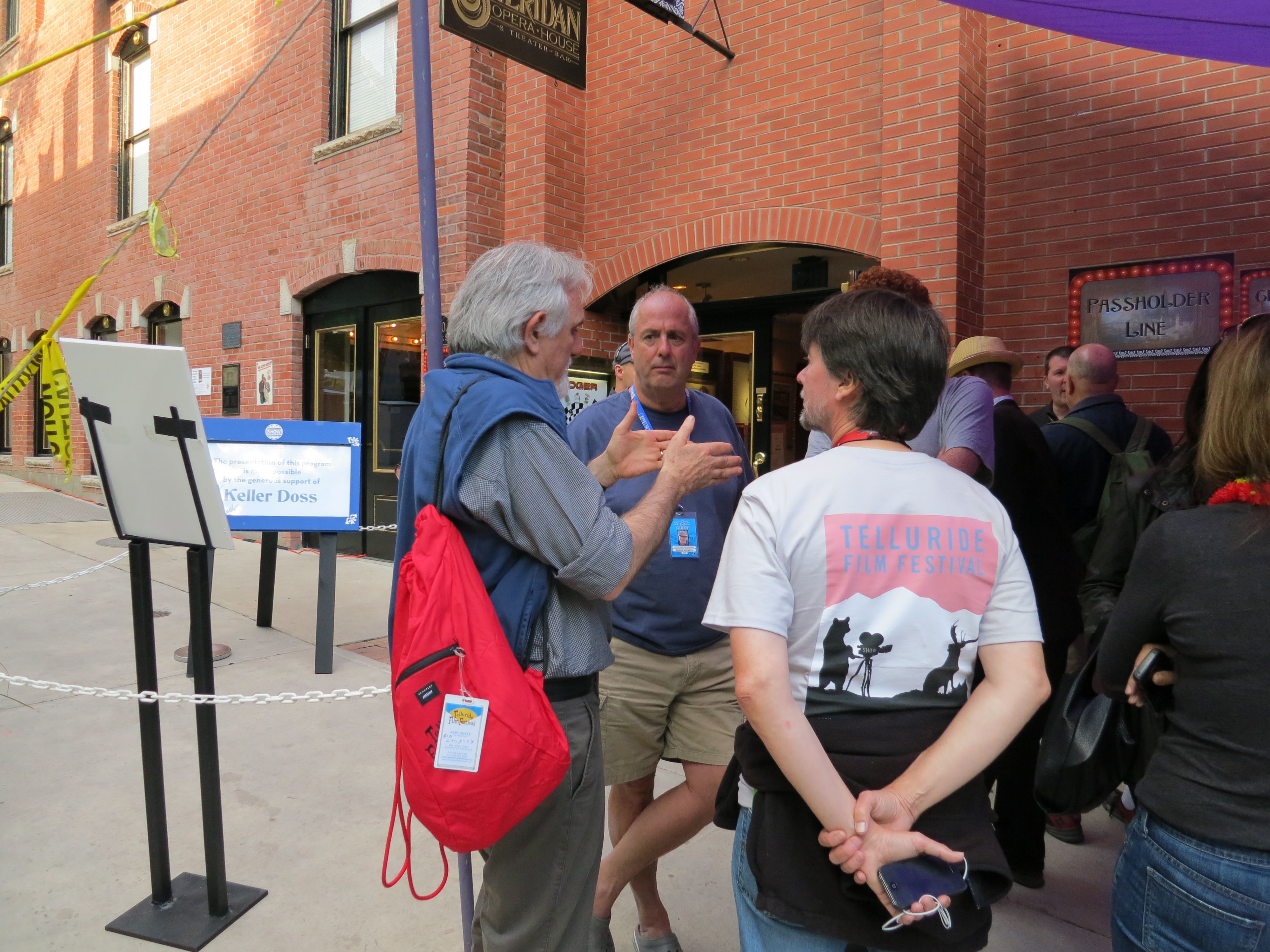
28 Aug Telluride Film Fest: Overview #3, Docs & More

Photo Credit: Clint Viebrock
Telluride has its fair share of star-laden premieres, but the SHOW has a strong tradition of non-fiction, which has equal footing with features.
Hands down, the one with the loudest Internet chatter among the docs in the 2013 Telluride Film Festival line-up is “The Unknown Known.”
“The Unknown Known” is Oscar-winner Errol Morris’ interview, in the vein of “Fog of War” (2003), with former and very feisty (but allegedly entertaining) former Secretary of Defense, Donald Rumsfeld. The film covers the Rumsfeld years from Vietnam to Watergate. Hold on to your hats. It’s a bumpy ride as Morris strips bare the contradictions, paradoxes, cliches, and flat out lies to expose the fuzzy logic inherent in Rumfeld’s so-called Rules, a list that led our country into wars in Afghanistan and Iraq.
Other docs include: an in-depth investigation that corroborates painter David Hockney’s theories about how Vermeer made his great paintings (“Tim’s Vermeer“); the story of the Slow Food revolution featuring its inventor, Carlo Petrini (“The Slow Food Story“); a study of the streets of Paris in May 1962, a city balanced between war and peace and about to enter the age of consumerism (“Le Joli Mai,” with commentary by Simone Signoret and music by Festival tributee Michel Legrand);.
“The Galapagos Affair: Satan Comes to Eden,” tells the story from journals and diaries of a German doctor who brought his wife to the Galapagos in 1929, seeking refuge from the “huge, impersonal monster” of organized society.
Rithy Panh’s “The Missing Picture,” is winner of a top prize at Cannes. The film resurrects the director’s childhood memories before and during Pol Pot’s reign of terror.
Also in the program, Werner Herzog’s “Death Row: Blaine Milam + Robert Fratta.”
Herzog continues the exploration of capital punishment he began with 2011 SHOW feature “Into the Abyss.”The Fratta and Milam portrait is one of four new, 47-minute profiles of condemned inmates. The case studies of convicts on death row examine the ethics of the death penalty and the humanity of the accused – without resorting to easy answers or preaching. Herzog’s talent for observing eccentric behavior and his obsession with probing complex issues are on display in this ambitious piece of cinematic moral inquiry.
(For more on Herzog at Film Fest our final post about special happenings celebrating the Show #40.)
Other films:
Guest directors’ picks:
For each of the past 25 years, the Telluride Film Festival directors select a Guest Director, to help with programming decisions. To celebrate the 40th anniversary, six past collaborators return to The Show with new programs. They are:
Dan DeLillo, from 2006, with “La Morte Rouge,” about a boy’s obsession with a Hitchcock movie he once saw, 2006, + the Zapruder film.
Buck Henry, 2005, brings “The Terminal Man,” based on a Michael Crichton novel, 1972.
Phillip Lopate, 1995, presents “Naked Childhood,” about a troubled, trouble-making orphan, 1960.
Michael Ondaatje brings “La Jetee,” a romance, 1962 + “Elephant,” a political film set in Northern Ireland, 1989.
B. Ruby Rich, 1996, presents “One Way or Another,” a Cuban film about the difficulties facing young love. 1974.
Salman Rushdie brings Satyajit Ray’s “Mahanagar,” a 1963 film about a young woman who gets a job because her husband’s salary cannot support the family.
Filmmakers of Tomorrow:
Calling Cards, great new works by promising filmmakers, curated by Barry Jenkins.
Student Prints: In its 20th year, the program celebrates the best in student-produced work from around the globe. Curated by Godfrey Reggio, with Q & A.
Backlot: A series of free films (first-come, first-served) at the Library.
Continue Reading Related Posts:
Telluride Film Fest: Overview #1, Tributees
Telluride Film Fest: Overview #2, Features
Telluride Film Fest: Overview #4, Meyer on Herzog & More for 40th


Sorry, the comment form is closed at this time.